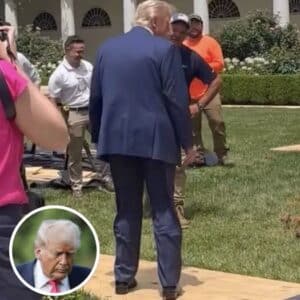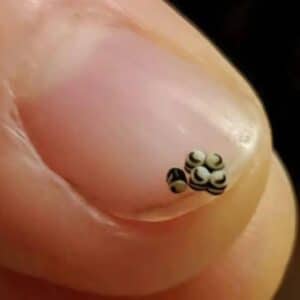Love Shows Up Anyway
Not every story arrives with sirens blaring. Some slip in quietly, their truths landing like a whisper yet shaking the soul.
This one is about a mother’s gut feeling, a son’s hidden struggle, and the stubborn thread of love that refused to break. It’s for any parent who has ever wondered whether it’s too late—or whether they’re overreacting—when their child goes silent.
The Day I Let Him Leave
After the divorce, our fourteen-year-old, Mason, asked to move in with his dad. I said yes.
Not because I wanted distance—my heart ached at the thought—but because Eddie had finally stepped up after years of being the “Saturday-afternoon fun guy.” Mason missed him. I hoped the extra time might repair their bond.
At first Mason texted constantly: goofy selfies with his dad, photos of charred pizza, snippets of movie nights. I saved every one. But slowly the pings dried up, the calls grew shorter, until there was nothing at all.
When Quiet Turns to Alarm
Silence settled in like fog—cold, creeping, disorienting. Then his teachers started phoning.
“He seems detached.”
“He left homework blank—that’s not like him.”
“He cheated on a quiz. It looked more desperate than rebellious.”
That word—desperate—echoed in my chest.
I rang Mason. Straight to voicemail. I tried again. No answer. Stared at the last photo he’d sent—two smiles over a burnt pizza—suddenly uneasy.
So I called Eddie, trying to sound calm, not accusatory, the careful dance divorced moms know too well. Eddie sighed.
“Claire, he’s a teenager. Teenagers pull away. You’re worrying again.”
His words felt familiar. Years earlier, newborn Mason had screamed through the night while Eddie slept, and I’d sobbed alone in the bathroom. Back then he’d told me, “Relax—he’ll be fine.”
I couldn’t do that this time.
A Rain-Soaked Thursday
Without calling first, I drove to Mason’s school. The bell rang; kids flooded out. Then I saw him: shoulders slumped, backpack hanging by a thread, eyes empty.
He got into the car wordlessly. Rain hammered the windshield. I blasted the heater, but the chill clung to us.
Finally, in a voice thin as paper, he said,
“Mom… I don’t sleep anymore. I don’t know what to do.”
The Truth in Pieces
Eddie had lost his job soon after Mason moved in—and told no one. The fridge at Dad’s house was mostly empty. Lights flickered. The microwave sparked, so Mason quit using it. Eddie was “out interviewing” most nights.
Mason survived on dry cereal and peanut butter, hand-washing socks, doing science homework in the dark while praying the Wi-Fi held.
“I didn’t want you to think bad of him—or me,” he whispered.
This wasn’t teenage moodiness. It was survival.
Bringing Him Home
That night I took him back to my place. No court paperwork, no argument—just instinct.
He slept fourteen hours straight. When he woke, he asked if I still had the chipped robot mug from his childhood. I found it at the back of a cupboard. He cradled it, then asked shyly,
“Mom, could you make breakfast?”
“Bacon, eggs, sausage—the works?”
He nodded. I cried in the hallway where he couldn’t see.
Rebuilding Trust, Brick by Brick
I filed to modify custody, quietly. I wasn’t out to punish Eddie but to protect Mason.
At home, Mason drifted like smoke: staring at walls, pushing food around his plate. I softened the house—predictable meals, gentle mornings, his choice of therapist and playlists.
Every night I slid notes under his door:
- You’re doing better than you realize.
- I see you, even when you’re silent.
- No one else is you.
He left them untouched. Then one morning I found a note on my pillow:
“Thanks for seeing me even when I didn’t talk. You’re the best, Mom.”
Popsicle-Stick Bridges
Weeks later he asked to stay after school for robotics club. He came home with a popsicle-stick bridge that collapsed in his hands. He burst out laughing.
“I’ll build another,” he shrugged.
I knew exactly what that meant.
A Stage and a Wave
At the end-of-year assembly they called his name: Most Resilient Student.
He walked to the stage—tall, steady—then paused, grinning. One hand lifted toward Eddie in the back row, the other toward me. No words, just that. It said everything.
Moving Forward
Eddie phones more now. It’s awkward, but Mason answers.
Sticky notes crowd the wall above Mason’s desk—his own reminders:
- Breathe.
- One step at a time.
- You’re not alone.
He teases me about my ancient phone, complains about broccoli, begs to dye his hair green.
And when he starts a sentence with, “Mom, can I ask you something?” I close my laptop. Because being the person he trusts to ask—that’s everything.
What Love Actually Does
I’ve forgiven myself for waiting so long. I understand now: silence isn’t always peaceful, distance isn’t always kind.
Sometimes love crashes the gate. It shows up uninvited and says, You didn’t call, so I came anyway.
Because when a child is free-falling, a mother doesn’t wait. She leaps, clings, refuses to let go—until he’s standing again, building bridges that might collapse today but will hold tomorrow.
That is healing.
That is love.





